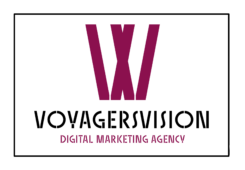In the age of the internet, digital marketing has become the cornerstone of business growth and audience engagement. But what exactly is digital marketing? Simply put, it’s a multi-faceted strategy designed to target, reach out to, and build relationships with customers online, through a wide range of channels, in a way that is measurable, flexible, and cost-effective.
Understanding Digital Marketing
At its core, digital marketing revolves around the use of digital channels to promote or market products and services to consumers and businesses. It encompasses a broad range of marketing tactics and technologies used to reach consumers online. From your website itself to your online branding assets—digital advertising, email marketing, online brochures, and beyond—there’s a spectrum of tactics that fall under the umbrella of “digital marketing.”
The Main Components of Digital Marketing
- Search Engine Optimization (SEO): The art and science of making your website visible in search engines. It’s about understanding what people are searching for online, the answers they are seeking, the words they’re using, and the type of content they wish to consume.
- Content Marketing: Involves the creation and promotion of content assets for the purpose of generating brand awareness, traffic growth, lead generation, and customers. The key is to provide value to your audience through content.
- Social Media Marketing: This practice promotes your brand and your content on social media channels to increase brand awareness, drive traffic, and generate leads for your business. Channels can include Facebook, Twitter, LinkedIn, Instagram, and more.
- Pay-Per-Click (PPC): A method of driving traffic to your website by paying a publisher every time your ad is clicked. One of the most common types of PPC is Google Ads.
- Email Marketing: Companies use email marketing as a way of communicating with their audiences. Email is often used to promote content, discounts, and events, as well as to direct people toward the business’s website.
- Affiliate Marketing: A type of performance-based advertising where you receive commission for promoting someone else’s products or services on your website.
- Online PR: Online press releases, blogs, and social media, constitute the modern digital platform for PR, providing the most direct, fastest, and most flexible way to reach, engage, and influence your target audience.
Why Digital Marketing Matters
The scope of digital marketing is constantly expanding and evolving, with new strategies and platforms emerging all the time. It offers numerous advantages over traditional marketing methods, including a higher level of engagement and interaction with audiences, measurable results, and the ability to easily adjust strategies based on data analytics.
In conclusion, digital marketing is an indispensable tool for businesses looking to thrive in the digital age. It not only helps companies to increase their visibility and reach online but also allows them to engage with their customers in a more effective and personalized manner. As technology continues to evolve, the importance of digital marketing will only increase, making it a critical component for business success in today’s digital world.
